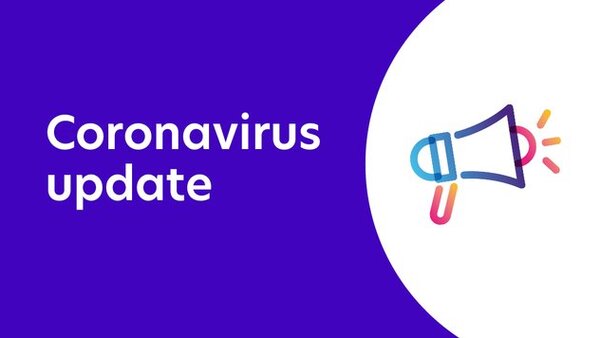Coronavirus: new parliamentary report highlights disproportionate impact on disabled people
Published on 22 September 2020

The Joint Committee on Human Rights (JCHR), an influential parliamentary committee made up of members of both the House of Commons and the House of Lords, has published a detailed and hard-hitting report on the coronavirus pandemic.
The committee looked at the human rights implications of the measures introduced by the Government to tackle the pandemic. They concluded that some groups of people, including disabled people, have been especially severely affected, and that urgent action is needed. This echoes the findings of our Left Stranded report earlier this month.
The National Autistic Society submitted evidence to the committee earlier in the summer, highlighting the ways in which autistic people and their families have been heavily and disproportionately affected by the coronavirus measures. We emphasised that, while the coronavirus outbreak and ensuing lockdown changed everyone’s lives and daily routines, it left many autistic people and their families completely stranded. We told the committee that all too often, autistic people seemed to be forgotten and overlooked in Government decisions. The committee quotes from our evidence in their report.
Summary of findings
One section of the report focuses on the detention of young people who are autistic and/or have learning disabilities in mental health units. The committee warns that the closure of mental health hospitals to the outside world during the pandemic increased the risk of people’s human rights being breached. They spell out how unlawful blanket bans on visits were put in place, routine inspections were suspended, and there was increased use of restraint and solitary confinement, creating “a severe crisis”.
The committee is clear in this report (and two previous ones published in October 2019 and June 2020) that young autistic people’s human rights are being violated while detained in mental health units. The committee calls on the Government to act urgently.
The report also highlights the devastating impact on people living in care homes who have been separated from their families. The committee chair, Harriet Harman MP, says, “Blanket bans on visits are not justifiable.” Resuming visits to hospitals and care homes must be a priority, and restrictions on visits should only happen if an individual is at particular risk. The committee says that the impact on a person’s mental health and emotional wellbeing of not having visits must be taken into account.
The committee notes that blanket use of DNACPR (do not attempt cardiopulmonary resuscitation) notices is unlawful, and says they have evidence that these notices have been widely used during the pandemic.
On social care, the committee highlights evidence that services have been significantly reduced in many local areas, and says that “the decision to reduce care provision to certain individuals is a very serious matter”. The committee tells the Government to make sure local councils and care providers are able to meet people’s increased care and support needs during – and resulting from – the pandemic.
The JCHR spells out its concern about the disproportionate impact of school closures on children with special educational needs and disabilities (SEND). The change in councils’ legal duties to support children with SEND, combined with widespread school closures, meant that many children missed out on the specialist support they need. The committee says that there should have been better guidance to schools from the Government, and they are very concerned that children with SEND have been unable to access their right to an education. They urge the Government to look into the effect of school closures on children and young people with SEND and to address any barriers to them returning to school.
Jane Harris, Director of External Affairs and Social Change at the National Autistic Society, said: “Disabled children and adults, including many autistic people, have been hardest hit by the coronavirus pandemic and the measures taken to combat it.
“All governments in the UK must take action now to prepare for another peak in coronavirus cases and protect autistic people and their families. This means addressing existing inequalities by investing in mental health, social care and education services that autistic children and adults need.
“Please sign our open letter to the Chancellor, Rishi Sunak MP, urging him to invest in autistic people’s futures."
Further information
- Read the full JCHR report.
- Read our recent Left Stranded report into the impact of coronavirus on autistic people and their families.
- Please sign our letter to the Chancellor calling for investment in autistic people’s futures.
- For information, guidance and tips about coronavirus, visit our Coronavirus Hub.
- For confidential support and advice visit the Help and Support section of our website.
